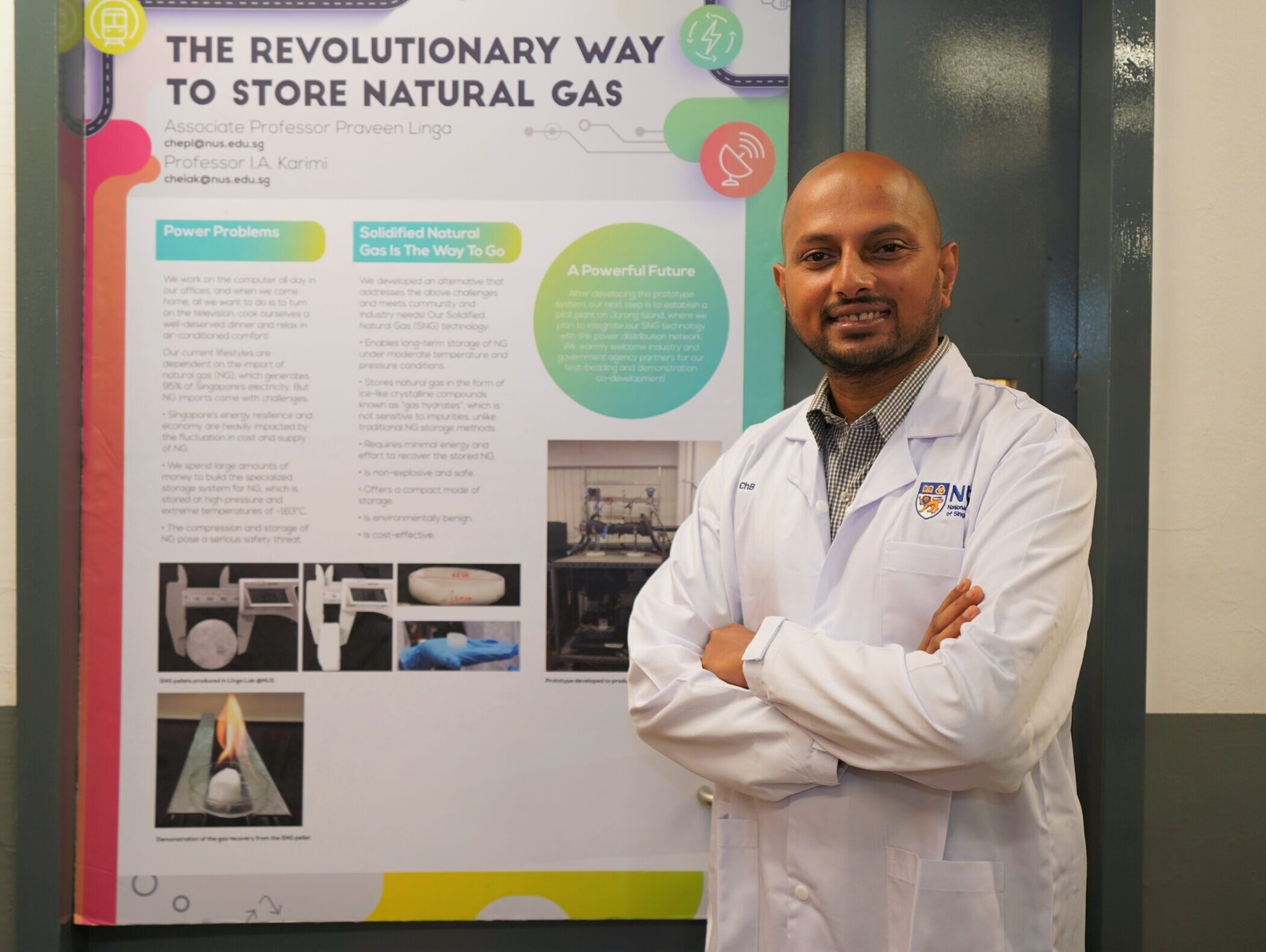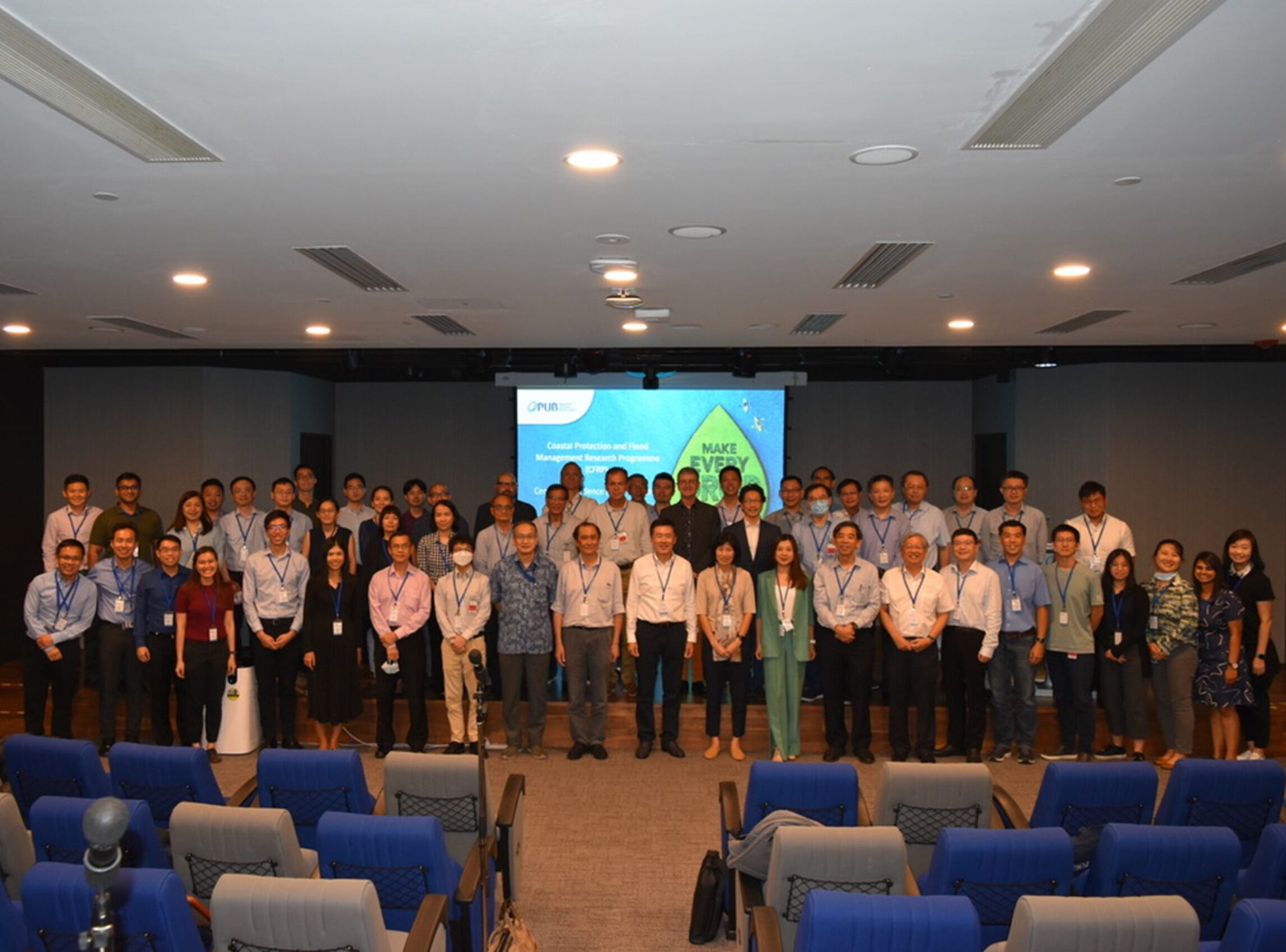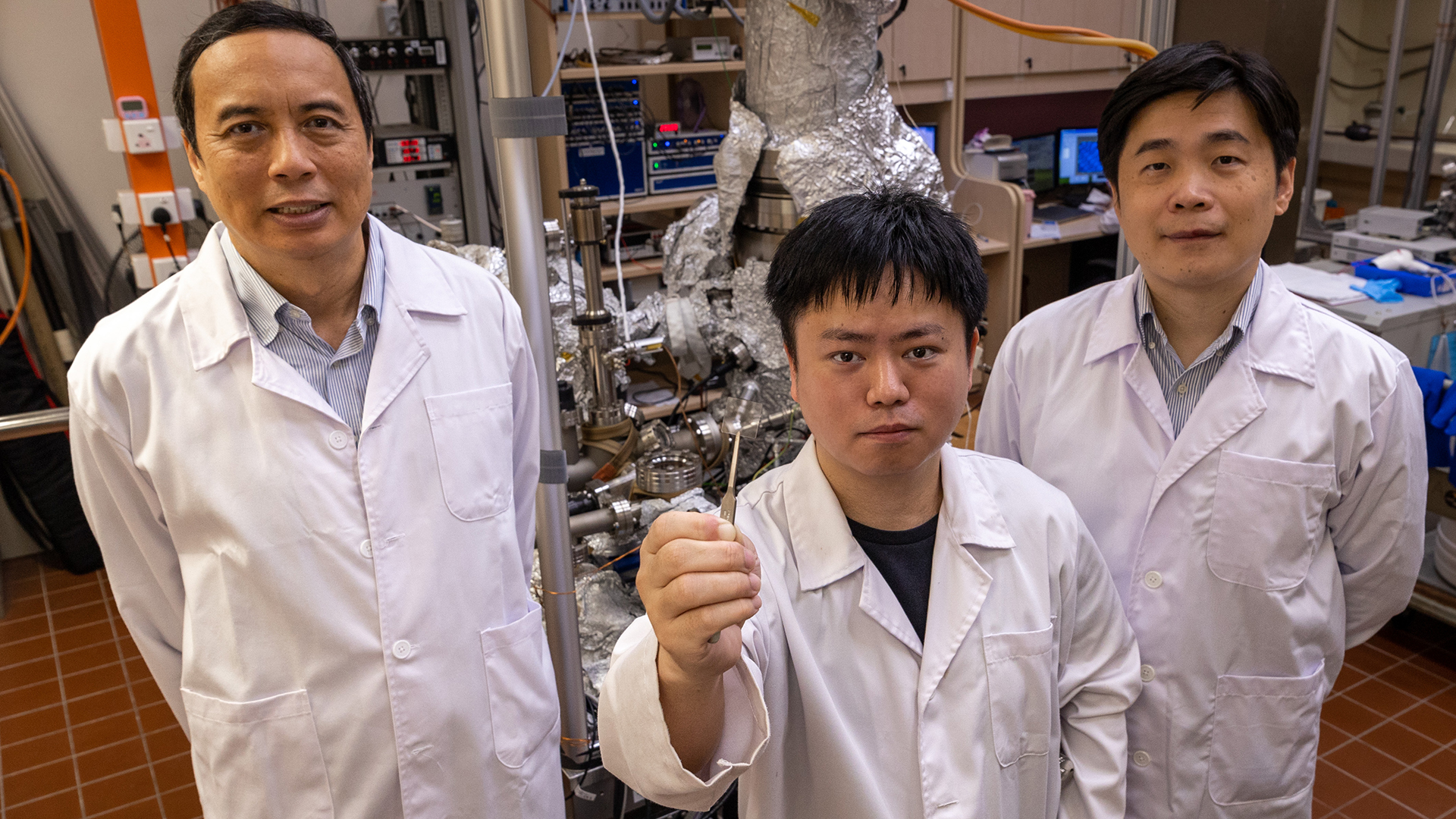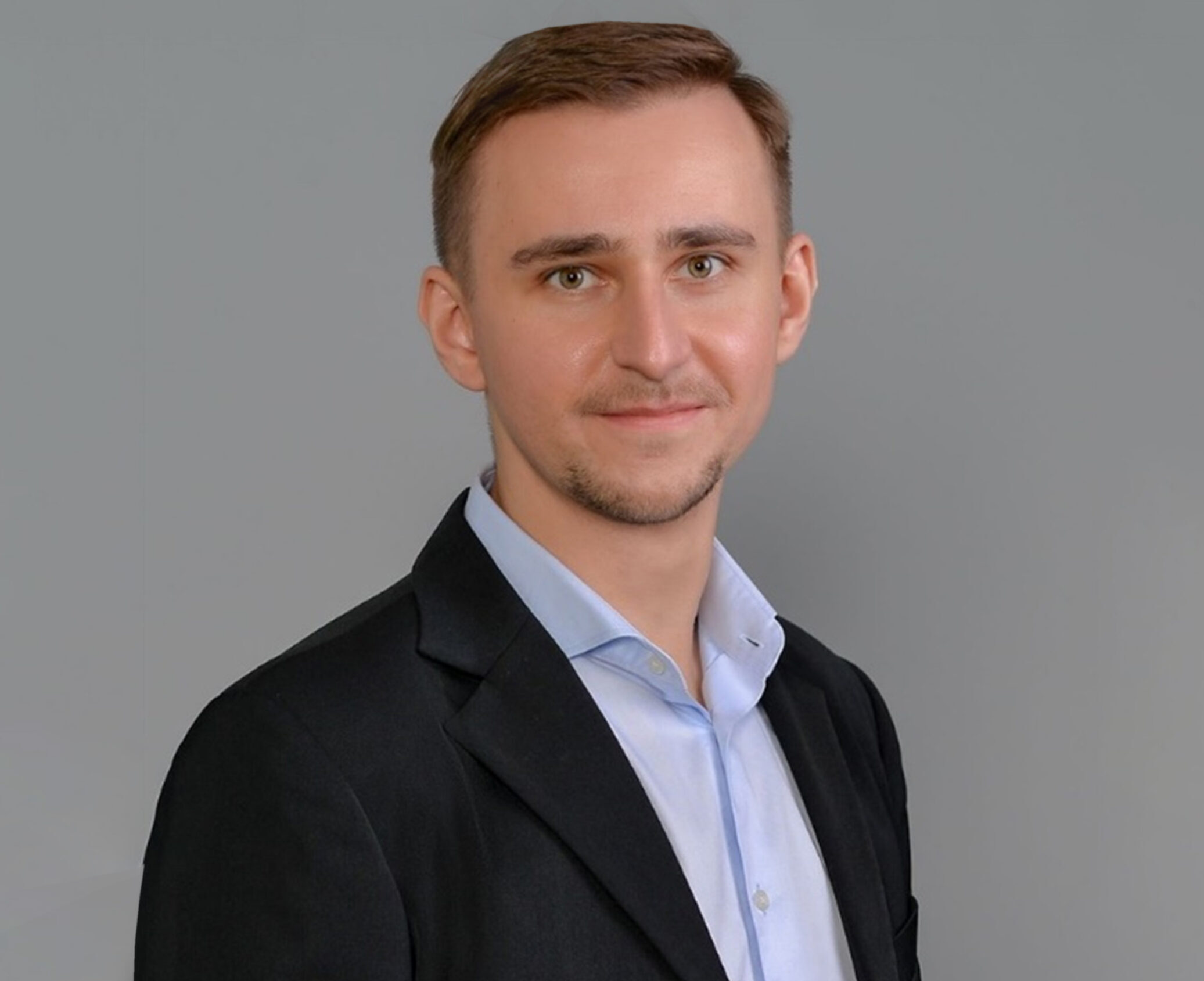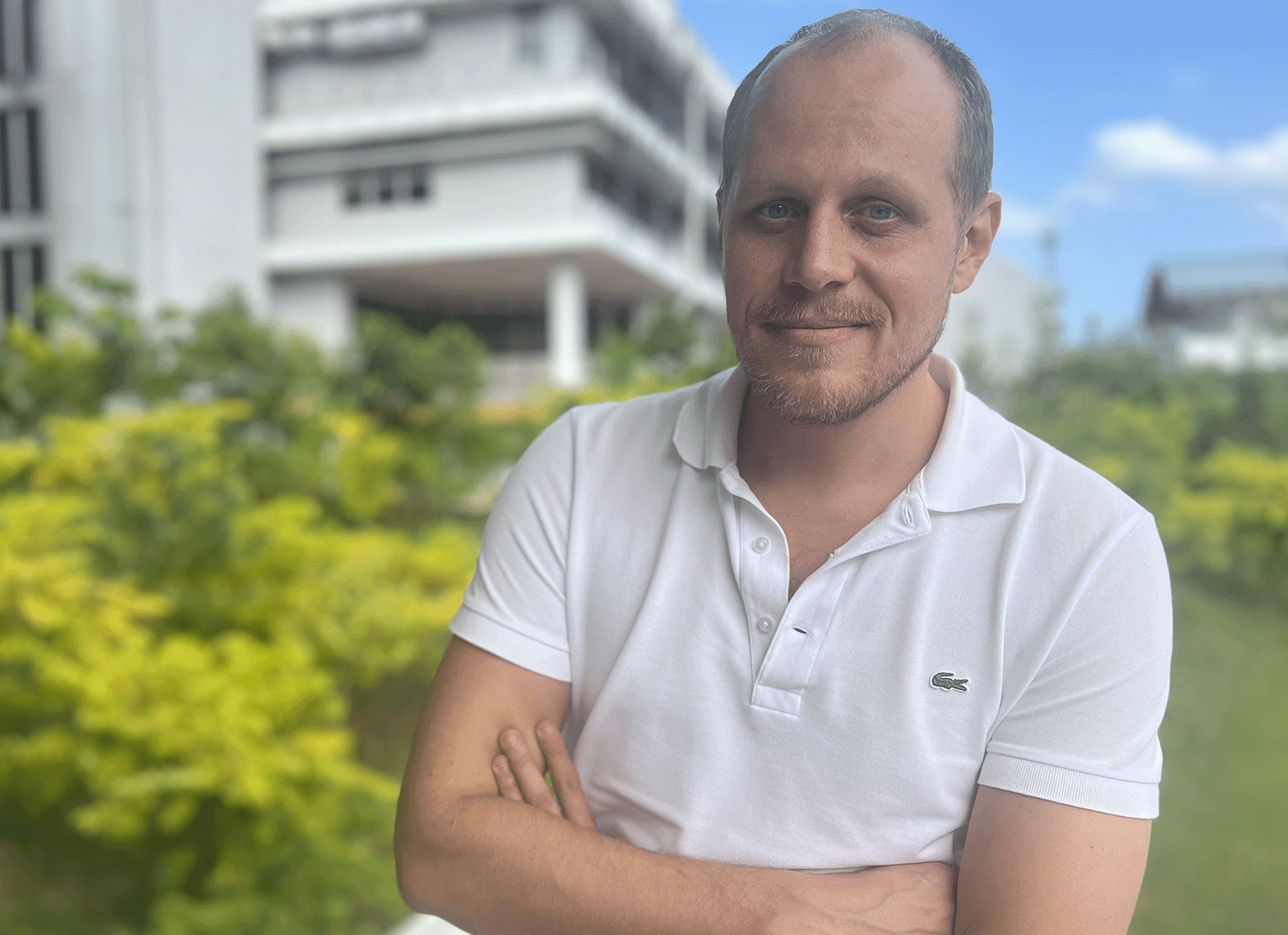HIGHLIGHTS
RESEARCH UPDATES, ACHIEVEMENTS & COLLABORATIONS
Memorandum of Understanding (MOU) has been signed between NUS and China's Huazhong University of Science and Technology (HUST) on expanding collaboration between the two institutions in education, research and commercialising technologies and innovations. Alongside the MOU signing CDE's Department of Mechanical Engineering signed two department-level "3+1+1" Joint Educational Framework agreements with HUST School of Mechanical Science and Engineering and School of Artificial Intelligence and Automation.
Researchers worldwide are actively investigating safer alternatives for the storage of natural gas—solidified natural gas (SNG), or natural gas hydrates, may just be the answer. In these hydrates, gases such as methane are trapped inside cages formed by water molecules. Additives and defined pressure-temperature conditions yield a stable, solid material that is suitable for long-term storage and can be transported without the dangers inherent to pressurised flammable liquids. These gas hydrates, however, are currently limited to the small scale of bench-top laboratory experiments. To that end, Professor Praveen Linga from the Department of Chemical and Biomolecular Engineering is working on advancing SNG technology for industrial viability. Read more at https://cde.nus.edu.sg/research-features-praveen-linga/
PUB has launched Singapore's first research programme dedicated to strengthening coastal protection and inland flood management capabilities. The $125 million Coastal Protection and Flood Management Research Programme (CFRP) will advance knowledge in coastal and flood resilience and spur the growth of a vibrant research and development ecosystem for coastal and flood resilience in Singapore. It will be funded under the Research, Innovation and Enterprise 2025 Plan.
A new multi-institutional Centre of Excellence (CoE) will be set up to conduct research in the above areas. The CoE will be hosted at the National University of Singapore, with the Nanyang Technological University (NTU), Singapore University of Technology and Design (SUTD), Singapore Institute of Technology (SIT) and Agency for Science, Technology and Research (A*STAR) as partner institutes. With collaboration at the core of the CoE, the research community will grow to include international institutions and industry partners.
More details can be found at Press release
A novel layered crystal material has been developed by researchers at CDE that could offer a significant step forward in the development of efficient, ultracompact optical microchips. The research was led by Dr. Qiangbing Guo and Associate Professor Cheng-Wei Qiu (Electrical and Computer Engineering); Professor Stephen J. Pennycook (Materials Science and Engineering); with Professor Andrew T. S. Wee (NUS Physics) and collaborators at University of Science and Technology of China. Read more at: https://cde.nus.edu.sg/novel-crystal-material-enables-a-key-step-forward-for-optical-microchips/
A team of cross institutional researchers, including Assistant Professor Denis Bandurin (Materials Science and Engineering), Dr Ilya Charaev and Prof. Karl Berggren (MIT) and Prof. Ivan Božović (BNL, Yale) has developed novel light sensors using two cuprate compounds, materials that host superconducting electron systems with the highest critical temperature at ambient conditions.
Conventional superconducting materials need to be cooled to extremely low critical temperatures at which they achieve superconductivity — a process achieved using expensive and bulky cryocoolers, which severely limits the practicality of the devices.
This breakthrough brings a range of benefits extending the potential applications fields ranging from quantum communication and neuroimaging to gas sensing and space exploration.
The team’s findings are published in Nature Nanotechnology. (https://lnkd.in/efqbp8FB). Read more about the research: https://cde.nus.edu.sg/research-features-denis-bandurin/
A novel method for evaluating the interpretability of artificial intelligence (AI) technologies could open the door to greater transparency and trust in AI-driven diagnostic and predictive tools. Developed by an international team of researchers spanning the College of Design and Engineering, NUS (CDE), the University of Geneva (UNIGE), and the University Hospitals of Geneva (HUG), the innovative approach aims to shed light on the often opaque workings of so-called "black box" AI algorithms, helping users’ understand what influences the results produced by AI and whether the results can be trusted. "Knowing what elements tipped the scales in favour of or against a solution in a specific situation, thus allowing some transparency, increases the trust that can be placed in them,” said Assistant Professor Gianmarco Mengaldo (Dept of Mechanical Engineering), Director of the MathEXLab at CDE, who co-directed the work.
Read more at: https://cde.nus.edu.sg/shining-a-light-into-the-black-box-of-ai/
Congratulations to our colleagues on winning the following major grant awards (total project value >$1M) with project start date in March 2023.
Project Title: WIDE-FIELD MULTICOLOR FLUORESCENCE DYNAMIC IMAGING FOR REAL-TIME DELINEATION OF TUMOR RESECTION MARGINS IN THE HEAD AND NECK
Funding Programme: MOH NMRC OPEN FUND INDIVIDUAL RESEARCH GRANT (OF-IRG)(MOH)
Principal Investigator: HUANG ZHIWEI;
Hosting Unit: Biomedical Engineering
Project Title: ENGINEERED TUMOR SLICE CULTURES FOR PERSONALIZED DRUG TESTING
Funding Programme: MOH NMRC OPEN FUND INDIVIDUAL RESEARCH GRANT (OF-IRG)(MOH)
Principal Investigator: FONG LI SHAN ELIZA;
Hosting Unit: Biomedical Engineering
Project Title: ADVANCED MODELS FOR ADDITIVE MANUFACTURING (AM2)
Funding Programme: A*STAR MANUFACTURING, TRADE AND CONNECTIVITY (MTC) PROGRAMMATIC FUND (A*STAR)
Principal Investigator: YAN WENTAO;
Hosting Unit: Mechanical Engineering
Project Title: TERAHERTZ RECONFIGURABLE INTELLIGENT METASURFACES (TRIM) FOR 6G COMMUNICATIONS
Funding Programme: A*STAR MANUFACTURING, TRADE AND CONNECTIVITY (MTC) PROGRAMMATIC FUND (A*STAR)
Principal Investigator: QIU CHENGWEI;
Co-Investigator: LEE CHENGKUO; ARIANDO (PHYSICS); ANDREW ANTHONY BETTIOL (PHYSICS);
Hosting Unit: Electrical and Computer Engineering




